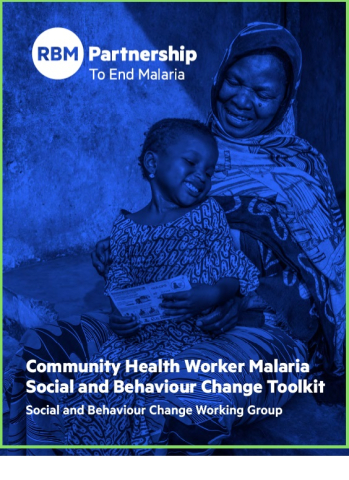
Description
The Community Health Worker Malaria Social and Behavior Change Toolkit, developed by the RBM Partnership to End Malaria Social and Behaviour Change Working Group in collaboration with Breakthrough ACTION, provides high-level guidance to incorporate social and behavior change (SBC) content into community health worker (CHW) training and materials. It is designed to be adapted by national malaria programs, implementing partners, and other stakeholders. It is not a training guide or a training manual for CHWs; rather, the content of this toolkit can be added to CHW training to cover essential aspects of SBC for malaria and enhance the work of CHWs. The individual modules in this toolkit can be used selectively for specific circumstances or adapted to meet country or regional needs.
Objectives
The toolkit provides CHW trainers with resources to help CHWs:
- Distinguish between social and behavior change (SBC) and social and behavior change communication.
- Identify behavioral factors and their roles in influencing malaria behaviors among community members.
- Identify and integrate SBC approaches into regular community activities to strengthen the uptake and maintenance of malaria prevention and treatment behaviors.
- Understand how to use monitoring and supportive supervision data to improve the quality of care.
Toolkit Modules
1. Principles of SBC: Describes SBC and seven principles and considerations that lay the foundation for behavior change to be successful
2. SBC Approaches for CHWs: Demonstrates the role of SBC before, during, and after a client seeks care from a CHW and the types of SBC approaches CHWs can use (e.g., interpersonal communication, digital health)
3. Community Mobilization Strategies: Defines community mobilization strategies and describes specific roles CHWs may play in implementation
4. Malaria Prevention, Testing, and Treatment Behaviors to be Promoted: Describes key malaria behaviors, factors related to behaviors, and SBC activities CHWs may implement to address them
5. Monitoring and Assessing Community Behaviors: Describes the important role of monitoring community-level behaviors and data sources that may be used by CHWs
6. Supportive Supervision of CHW SBC Activities: Outlines SBC components that can be incorporated into existing supportive supervision of CHWs to improve the quality of care